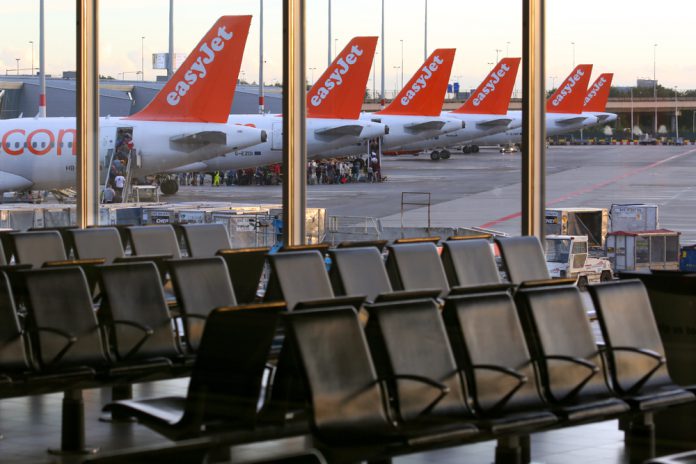Budget airline Easyjet has set up a separate airline based in mainland Europe, its CEO Carolyn McCall announced on Tuesday.
McCall said Easyjet’s main priority was maintaining flying rights in Europe after Brexit negotiations, and that no jobs would be lost from its current headquarters in Luton.
She said: “We are not saying there will be no agreement [on EU flying rights]. We just don’t know the shape or form. We don’t have the luxury of waiting. But we have to take control of our own future.”
The British airline will become the subsidiary company, with Easyjet operating in its entirety in Europe. According to the BBC’s analysis, the existing UK airline will operate certificate ring-fenced, so that it remains majority-owned by British shareholders.
McCall also ordered a review aimed at producing a “simpler, more efficient organization” together with “meaningful” savings.
“Significant challenges” hit profits
Easyjet also announced that a year of “significant challenges” had an impact on profits, as expected after last month’s profit warning.
Pre-tax profits in the year to September 30th fell 27.9 percent to £495 million, with revenues falling 0.4 percent to £4.67 billion as the airline slashed fares to entice customers.
Passenger numbers rose 6.6 percent to 73.1 million, showing that there was “no lack of demand”, according to McCall.
However, the company has faced “significant challenges” over the past year, including weakening sterling, terrorist attacks and air traffic control strikes.
EasyJet cut its 12-month dividend payout by 2.5 percent to 53.8 pence as a result of the profit decline, and failed to comment on 2017 earnings.
“In a tougher operating environment strong airlines like EasyJet will get stronger, and we will build on our already well-established network,” McCall said.
EasyJet (LON:EZJ) is currently trading up on the London Stock Exchange, with shares rising 2.81 percent to 1,061 pence per share (1055GMT).

